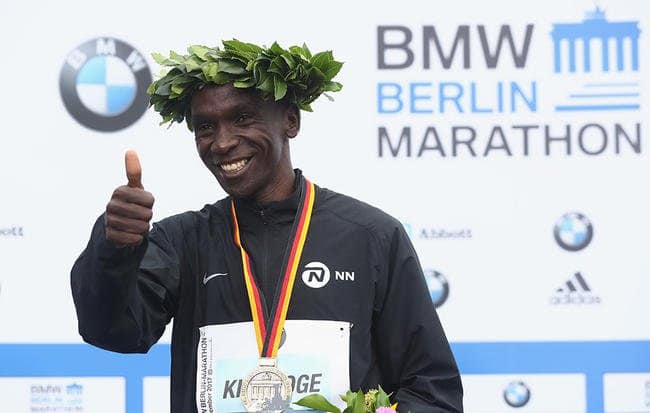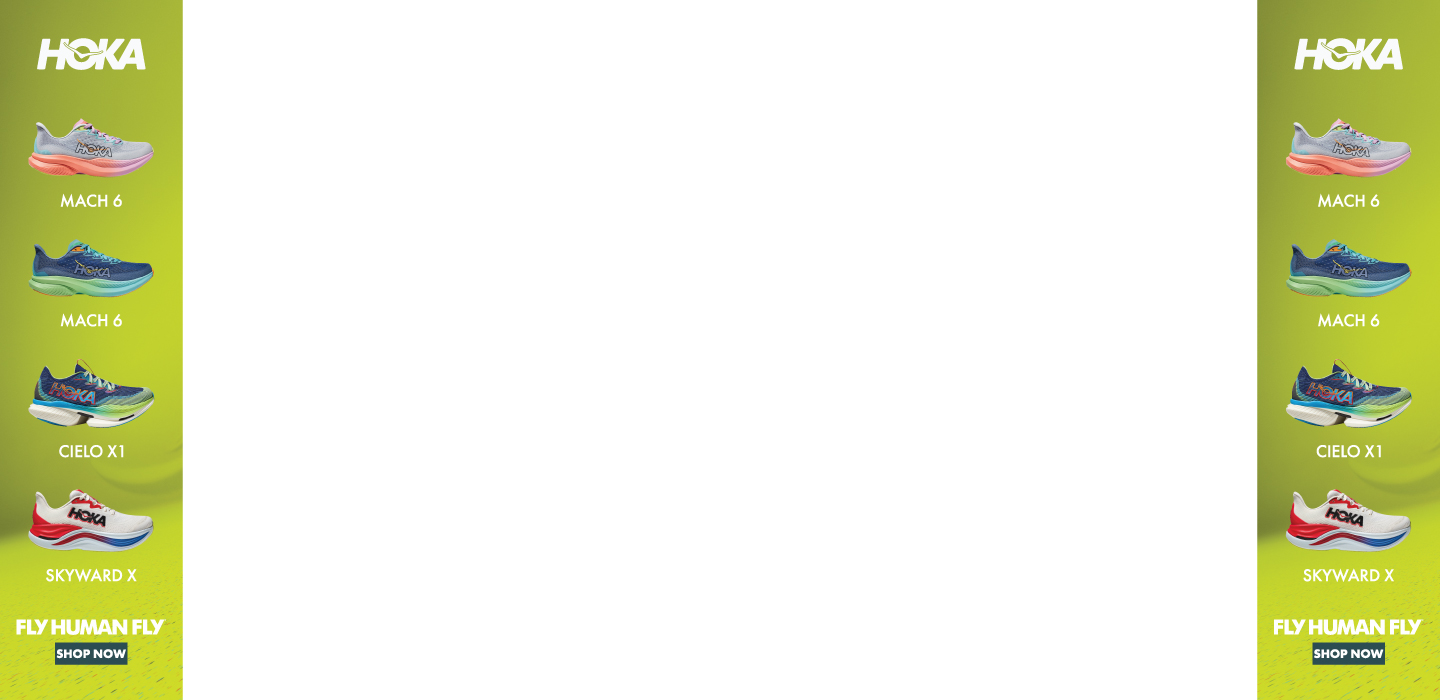The World’s Fastest Marathoner Couldn’t Break the World Record – Here’s Why
Don’t hold your breath that the 42.2km record will be shattered anytime soon. – By Amby Burfoot

Danke schön, Berlin Marathon. Now maybe we can return to some common-sense talk about marathon world records.
In Sunday’s race, we were supposed to believe that a new marathon world record was almost assured. The course was where Dennis Kimetto ran 2:02:57 three years ago. Only now the field included former marathon world record holder Wilson Kipsang (2:03:23, Berlin 2013), 5,000 and 10,000-metre world-record holder Kenenisa Bekele, and the incomparable Eliud Kipchoge. Kipchoge scored a commanding victory in the in 2016 Rio Olympic Marathon and then ran that astonishing 2:00:25 this May in Nike’s Breaking2 time-trial in Monza, Italy.
But the 2017 Berlin Marathon showed that in real racing, shaving even seconds off the world record will be no small feat for the person who does it.
The three top billed runners on Sunday went through the Berlin halfway mark in 1:01:29. That put them in perfect position to run a few seconds faster over the second half and finish slightly under Kimetto’s world record. Only it didn’t happen that way. Bekele and Kipsang dropped out, and Kipchoge slowed enough, winning with a time of 2:03:32. That’s the seventh fastest “legal” marathon ever, with six occurring on the Berlin route.
Apologists were quick to point out that this year’s Berlin weather seemed less than optimal – rainy, with high humidity. (Kipchoge himself said this was a factor after the race.) At Wired.com, Ed Caesar, author of the 2015 book Two Hours: The Quest to Run the Impossible Marathon, termed Kipchoge’s run “a miraculous time in the circumstances.” Maybe.
Or, maybe not. Let’s see how the Berlin women fared. Winner Gladys Cherono ran 2:20:23 – 58 seconds slower than her winning time at Berlin in 2015. The next two finishers (Ruti Aga from Ethiopia in 2:20:41, and Valary Ayabei of Kenya in 2:20:53) ran personal bests by about four minutes and one minute. They must have enjoyed the drizzle.
RELATED: Kipchoge Takes The Berlin Marathon Win, But The World Record Stands
What about the second-place male, Ethiopia’s Guye Adola? He was running his first-ever marathon with a half-marathon PB that predicted a finish in the high 2:04s. Instead, Adola pushed Kipchoge to the limit, clocking a 2:03:46. The “circumstances” didn’t seem to affect him much.
In other words, this was a rainy, humid Berlin Marathon, but you can’t conclude it was an impossible day for strong marathon performances.
No, the smarter conclusion is this one: The Breaking2 race in May was uniquely and substantially different from legal, open marathon competitions. You can argue about the effect of an auto-race track, Nike shoes, high-octane sports drinks, pace cars, balletically-supplied six-person pace teams, and waiting for the perfect weather to run – as everyone did after the race in Monza – but something very special and different happened that morning.
RELATED: Kipchoge Runs A 2:00:25 In The Breaking2 Attempt
We may not know exactly what it was, but we should assume that it won’t be easy to replicate. At least not in an IAAF sanctioned marathon for some time.
In the real world, improvements on Kimetto’s 2:02:57 are likely to be modest, and difficult to come by. It’s not a “soft” record; it’s a solid one. It will fall, sure, but it won’t be busted by a big margin.
And when it comes to a sub-2-hour competitive marathon, don’t hold your breath. Before we see a sub-2, we’ve got to see athletes covering 10,000 metres in about 25:50, which is almost 30 seconds under the current record. (Which, by the way, was set 12 years ago.)
Or runners need to be hitting the half-marathon tape in about 57:00. The current record is 58:23. It was run seven years ago, and has managed to hold its rank despite the tidal wave of elite half-marathon races around the world.
Inhale. Exhale. Don’t hold your breath.
READ MORE ON: breaking2 Eliud Kipchoge



